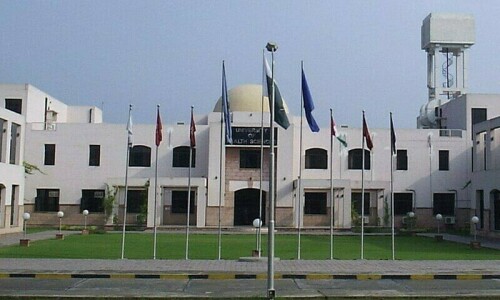Social and political consciousness is an intrinsic element of Guru Nanak’s poetic being that rejects the one dimensional view of life. Duality between the material and the spiritual is alien to him. In his verses, mundane and sublime together create an intricate network of interconnections that sustains individual and collective existence. His endeavour aims to grasp the totality of life. His holistic vision is a product of his intense intellectual and spiritual odyssey as well as the outcome of his long travels. He visited the Central Asia and the Middle East. He toured almost the whole of India and even went to Sri Lanka. His journeys exposed him to diverse cultures and societies that helped him evolve his unique worldview underpinned by spiritual humanism. He, after the Lord Buddha, was the second sage of immeasurable depth who challenged philosophically and morally the Indian society which had internalised the notion of inequality as raison d’être of its existence. Unwavering faith in the equality of human beings irrespective of caste and creed is the lynchpin of his moral and metaphysical construct.
He was a great doubter. He always questioned the given, handed down from generation to generation in the garb of sacred tradition. He challenged what was forced down the peoples’ throat as the gospel truth by religious groups with vested interests in support of oppressive socio-political structures.
“There they go to bathe in sacred waters with a deceitful heart and lust of a thief With a dip they change their being into a new one Though they wash their wrap of its dirt but their heart nurses venom; fresh and pure—.”
He spares neither Hindu priest nor Muslim Mullah. “No more the chants of Qadi and Brahman. The Satan himself now solemnizes the nuptials”.
What an exposé of the Muslim and the Hindu clergy that paddled holy garble in the name of piety! He has nothing less than utter contempt for the ruling elite’s socio-political system.
“Greed is the ruler, sin is the treasurer and falsehood is the ministration--.”
Unlike Mao he does not believe that people are never wrong. Despite his immense love for the people he has no illusions about the popular mindset created by historical conditions in a society based on hierarchy. So he is not reluctant to tell the truth and “To tell the truth is revolutionary”, says Italian thinker Antonio Gramsci who bravely resisted the falsehood of Mussolini’s fascism. The cultural hegemony of ruling elite creates norms that are internalised by the people and thus become ‘common sense’ values of society at large. People identify their interests with the interests of their oppressors and become unwitting tool of maintaining the status quo instead of revolting.
Guru Nanak, centuries before Gramsci‘s exposition of cultural theory, realised that people had to emancipate themselves from the clutches of cultural hegemony of ruling classes in order to be themselves. Upper classes do not maintain their dominant position just through political violence and economic coercion but also through ideology. People under the influence of dominant culture of ruling cliques accept the subterfuge which perpetuates their false consciousness.
“Subjects, blind and ignorant, submitting (to the oppressors) are as good as dead -- .”
Guru Nanak loved debate and dialogue to explore the reality. He, in his famous encounters with the traditional clerics, scholars, ascetics and mystics, questioned the answers they offered to solve the mystery of existence. He, in fact, went one step further and had the intellectual courage to question the very questions the tradition asked. His use of Socratic irony facilitated him to challenge the age old metaphysical narrative which was a socio-political ploy to keep the people subjected to the old order; religious and secular.
Guru Nanak as a poet remains unequalled. He is not only profound and prolific but also most diverse. The number of genres he wrote in or created is simply stunning. The genres he employed for his expression include Shloka (couplet) Kafi (lyric), Var (epic) Baran mah (poem of twelve stanzas corresponding to the twelve months of the years), Aarti (Hymn), Sohle (Eulogy/Nuptial song), Sidhgosht (dialogue), Pahir (verses describing the four stages of life) and Sithni (a poetic composition designed to express the mundane experiences of life). And the above list is not exhaustive. The variety of meters (Chhandhas) he effortlessly plays with is immense. No poet before or after him has displayed such a virtuosity and artistic skill though he himself shows extreme humility, a mark of true saintliness, when he talks of himself:
‘Useless bard I was! The Lord assigned me a task Sing of time, day and night, he ordained’.
And his song of time is indeed immortal. His was a divinely inspired voice, expressing not only the ‘sigh of the oppressed’ but also making the oppressed aware of the conditions that compelled them to sigh. Poetry for him was revelation of the veiled, both mundane and sublime. Word uttered in a state of wakefulness was a means of emancipation and salvation:
“Praised be the paper, praised be the pen, praised be the pot, praised be the ink, praised be the writer who writes the truth”.
soofi01@hotmail.com
(Concluded)v











































